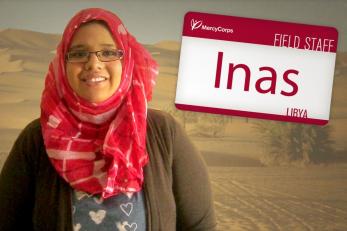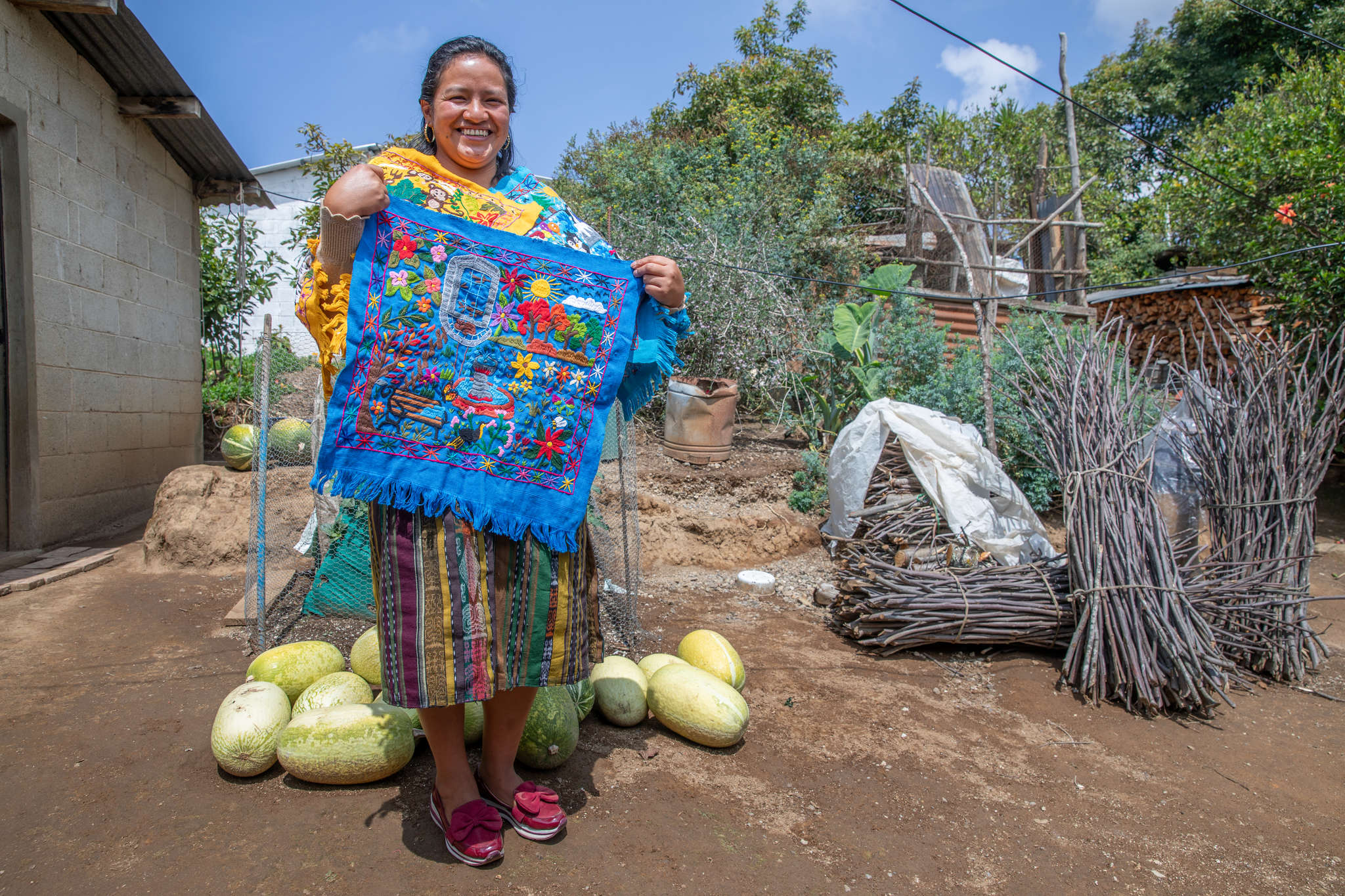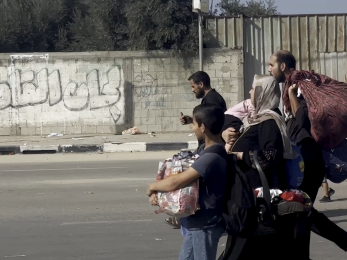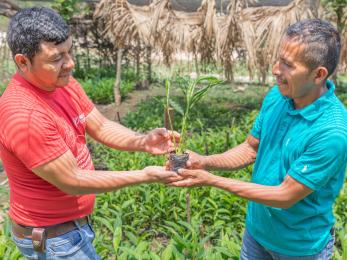Meet our field staff: Inas

It’s difficult to be a woman in many of the countries where we work, especially if you’re on the front lines, working hard to change your community — and ideas about gender equality in the process. But many of our staff members are doing just that. These strong women leaders amaze us every day with their resolve and courage to break down barriers.
In this month’s staff profile, meet Inas, a member of our Libya team. Once a refugee herself, Inas knows firsthand the challenges facing displaced communities in post-revolution Libya. We’re inspired by her determination to empower women to take an active role in shaping their nation’s future.
My position with Mercy Corps: I am a Project Officer in the Libyan Protection Governance Initiative. Mercy Corps has been helping displaced and conflict-affected people in Libya since March 2011, about two weeks after the revolution started. There are between 50,000 and 75,000 people in Libya who were displaced during and after the revolution, for many different reasons.
This current program builds on the initial emergency relief work that we did. We address a really broad range of issues that can be summed up as access to services, shelter, and security for displaced and vulnerable people. The people who benefit from our work are among the most vulnerable people in their community who can’t access assistance from anyone else.
What we do: For example, one of the towns that we cover recently experienced large-scale displacement as a result of incursions by armed groups from another town. About 1,500 people were displaced to a neighboring town, which lacks the infrastructure and resources to meet their needs.
We are providing assistance to individuals and families — things like wheelchairs for people living with disabilities who left behind their own wheelchairs when they were displaced. We’re also working with a local hospital to identify and address unmet needs for basic medicines and medical equipment.
A typical day at work: Every day is different and that is what I like most about my job! A typical day can encompass anything and everything from sitting at my desk working on reports, to meeting with displaced families and local leaders in one of the many different towns that we cover or even facilitating a training workshop. At the moment, some days often involve discussions with representatives from local organizations about projects or activities that we are supporting them to implement.
Motivated by my history: I grew up in Libya but then was a refugee in Tunisia and can relate to the hardships faced by those we support. I understand that they feel left out and discriminated against. I’ve learned that it’s important to listen carefully to people, to make sure that we agree on the best approaches and strategies for addressing their hardships and needs. I know that every change takes time but it can happen eventually — so be patient and optimistic.
A new role for women: Everything changed for me after the revolution. Beforehand, I was a girl without any hopes or ambitions and suddenly the revolution came and I had the chance to be free, liberated and creative. I volunteered as a teacher in a Libyan refugee camp in Tunisia during the revolution. Later, back in Libya, I joined a women’s NGO called Tiwatriwin. At first, it was just because I liked the idea of being an activist on women’s issues but now I feel like it’s not a choice at all! I feel like I have to do this work, and I am so full of passion for women’s rights and developing the capacity of women and girls to contribute to their communities. The traditional pressures against women working in the field are a challenge but I am optimistic that these barriers can be overcome with time.
Why I love what I do: Mercy Corps is one of the greatest organizations that works in Libya, and anywhere else, and I’m not just saying that because I work here! Honestly, Mercy Corps is helping to make my dreams for my future career come true. I’m gaining great experiences and really benefitting from a work environment that promotes creativity, transparency and professionalism. I feel really supported by my colleagues and, for the first time, I feel that being a woman is not a barrier to taking on a leadership role and being heard by local community leaders.
At the end of a long day of hard work, completely exhausted, there is nothing better than getting a phone call from a displaced family to tell me that we’ve fixed their problem or addressed their need. I feel like I’m really making a difference, and that I’m doing work that matters to people and has a direct impact on their lives — that’s amazing.
A memorable moment: During one of our protection monitoring visits, I went to talk to a female head of household with five children. When she saw me at the door she burst into tears and said that she’d tried every way she could think of to try and contact someone, and she was so grateful that someone had finally come to talk to her. It’s a good reminder that, even though we can’t solve everyone’s problems or address everyone’s needs, sometimes just being there to hear peoples’ stories is also important. Protection isn’t only about providing material assistance or addressing security risks, it’s also about restoring dignity to people. Remembering what that woman said to me still helps motivate me every day.
Life in Libya: We have a proverb that says (loosely translated): “the person who does not come to Libya will ruin everything in their life.” Libya is such a great country, with the friendliest and most generous people. Even though I’ve been living here my whole life, I still feel lucky to be Libyan!
I love the sun, the sea, the mountains and the unique culture of the country, which is rooted in the land itself. Libya is not only rich in oil and natural resources but also rich in different cultures, historical events and the many wonderful people who have invested so much of themselves to make sure that freedom, love and peace can flourish.
In the aftermath of the revolution, Libya has been reborn and is still discovering its new identity and what the future will bring for its people. The revolution was a hard time, but this transitional phase is even more difficult and we are all working so hard to try and support the development of the country.
Hopes for my country: For Libya, I hope for a peaceful future — and a woman president! For the vulnerable people that we work with, I hope that durable solutions are found and that they are supported to really begin their lives again.
For myself, I hope someday to be as qualified as the people I work with and to help make the local NGO that I’m part of just as strong as Mercy Corps, so that we can help women and girls all over the world to realize their rights and have their voices be heard.


